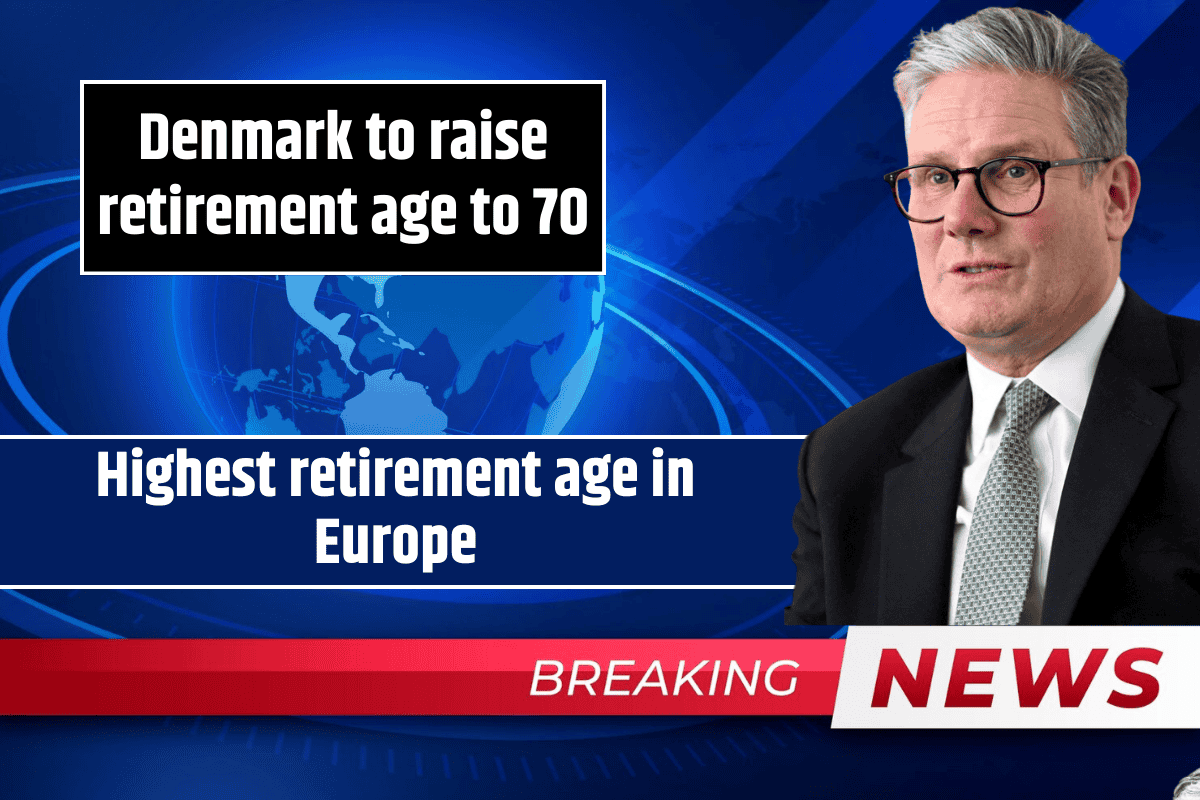Denmark has officially decided to raise its retirement age to 70 by the year 2040, making it the highest in Europe. This decision was passed after a vote in the Danish parliament, with 81 votes in favour and 21 against. While the move aims to address rising life expectancy and financial pressures, it has sparked a strong reaction from workers and trade unions.
Why Is Denmark Raising Its Retirement Age?
Since 2006, Denmark has linked its retirement age to life expectancy, which currently stands at 81.7 years. Under this rule, the retirement age increases every five years to keep up with how long people are expected to live. The government plans to:
- Increase the retirement age to 68 in 2030
- Raise it to 69 in 2035
- Finally set it at 70 in 2040
This highest retirement age will apply only to Danes born after December 31, 1970.
Reactions from Workers and Public
While the Danish government sees this as a practical step, many workers, especially those in physically demanding jobs, are unhappy and concerned. For people like Tommas Jensen, a 47-year-old roofer, the decision feels unfair.
“We work and work and work, but we can’t keep going,” he said, explaining that such a high retirement age is unrealistic for people in labour-intensive jobs. He added, “There should also be time to be with children and grandchildren.”
Trade Unions Call the Decision “Unfair”
The Confederation of Trade Unions in Denmark has also spoken out against the move. Chairman Jesper Ettrup Rasmussen called the policy “completely unfair”, pointing out that Denmark already has a strong economy. He added, “A higher retirement age means people lose the right to a dignified senior life.”
Prime Minister Says the Current System Is Flawed
Even Prime Minister Mette Frederiksen has admitted that the current retirement system is not sustainable. She said the country can’t continue raising the retirement age automatically, and that a new plan will be needed.
How Does Denmark Compare with Other Countries?
Raising the retirement age is a hot topic across Europe, as countries try to handle rising life expectancy and budget concerns. However, Denmark’s move has surprised many because the country is known for its strong welfare system and comfortable living conditions.
Here’s a quick look at retirement ages in other countries:
- Sweden: People can claim pension as early as 63
- France: Recent protests erupted when retirement age increased from 62 to 64
- United Kingdom: Retirement age is 66 for most people born between 1955 and 1960, and is gradually rising for younger generations
Denmark’s plan to raise its retirement age to 70 by 2040 has become a major topic of debate. While the government argues it’s necessary to adjust for people living longer, many workers feel it’s an unfair burden — especially for those in physically demanding jobs. The move makes Denmark stand out as the European country with the highest retirement age, despite having one of the healthiest economies. As the conversation around pensions continues in Europe, this decision may spark similar debates in other countries as well.
FAQs
What is Denmark’s new retirement age policy?
Denmark will raise its retirement age to 70 by 2040, applying to citizens born after December 31, 1970.
Why is Denmark increasing the retirement age?
The retirement age is tied to life expectancy and is being raised every five years to manage pension costs and longer lifespans.
What are workers in Denmark saying about this decision?
Many workers, especially in labour-heavy jobs, say it’s unrealistic and unfair. Trade unions are also strongly against it.
How does Denmark’s retirement age compare to other countries?
Denmark will have the highest retirement age in Europe. In comparison, France is at 64, Sweden at 63, and the UK at 66.
Will the retirement age continue rising in Denmark?
PM Mette Frederiksen has said the current system is not sustainable and may be replaced with a new plan in the future.
